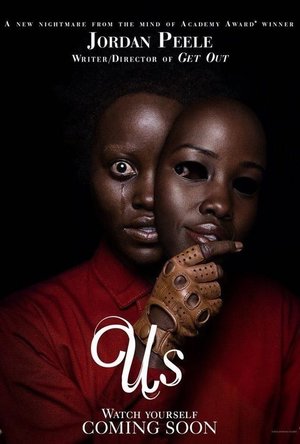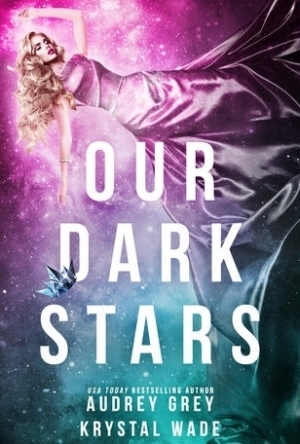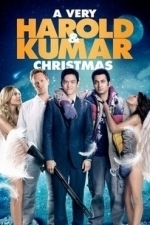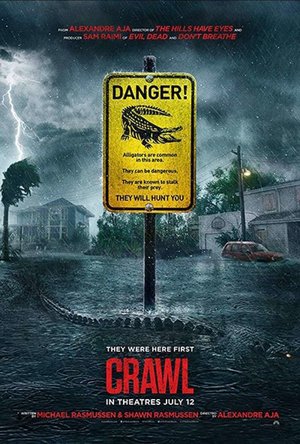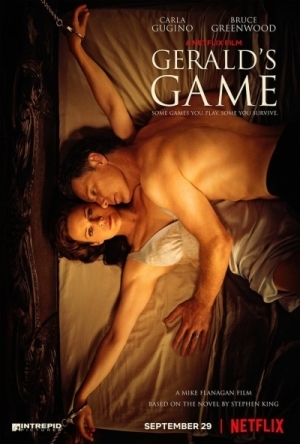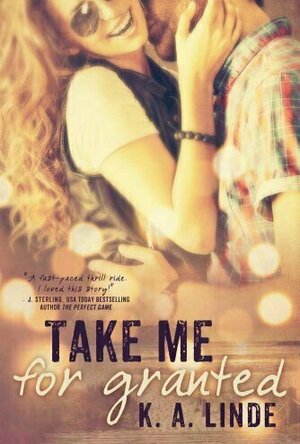Search
Search results
Andy K (10823 KP) rated Us (2019) in Movies
Sep 21, 2019
I wish I would've liked it more.
A married couple decide to take a vacation at a beach house. Their relaxation bliss is soon interrupted by four strangers who actually turn out to be evil counterparts or "doppelgangers" of the family who have come to torment them.
Each counterpart goes after their "normal" version in various ways including on the used power boat they had just purchased or having a conversation while sitting in their living room. Not known is why or who they are and what are their intentions. They family tried to take refuge at their neighbors home only to discover they met with their demise courtesy of their own set of demons hunting them.
The family eventually reunites and tried to escape, but are pursued. Several confrontations ensue at the beach where some carnage is executed by the demons and the family against each other.
Then the twist, kind of. A scene at the start of the film when the mother had a traumatic experience as a child getting separated from her family and finding her way into a hall of mirrors and seeing her other self as a child is explained. Truths you thought were truths end of being a lie or a different situation than you originally thought.
In trying to figure out a type for this film it is rather difficult. It is not particularly scary or gory. I suppose suspense/thriller would suit it best, but I'm not sure that is what writer/director Jordan Peele was going for. I liked the visuals, the acting, the musical score and some of the ideas, but not really the execution or the screenplay.
It had some jokes like the "Home Alone" reference and other scenes where the parents and children are together making fun of each other which were just not funny and took away from the tension.
My main problem with the script was the fact that the characters' actions were mostly not appropriate. No one seemed to be bothered by the fact that these other human/non humans existed and when family members, even children, begin performing heinous actions, they don't even seem to blink an eye. They also have to write in the scene where they try and call the police and they are unavailable.
I feel like there was a really great film in there somewhere, they just didn't get it quite right. The middle section dragged somewhat and the ending was interesting but didn't hold water the more you thought about it. I have no issue with a vague ending as long as it leaves you thinking and drawing your own conclusions; however, this film was vague not in a good way I think just due to a mediocre screenplay or maybe bad editing.
Peele certainly had his own big shoes t fill after getting a Best Picture nomination for his first film, Get Out. The box office and critical acclaim were paramount on that one.
Hopefully, he will rebound from this film and create something truly unique and interesting for his next effort. We certainly need more great horror writer/directors out there!
Each counterpart goes after their "normal" version in various ways including on the used power boat they had just purchased or having a conversation while sitting in their living room. Not known is why or who they are and what are their intentions. They family tried to take refuge at their neighbors home only to discover they met with their demise courtesy of their own set of demons hunting them.
The family eventually reunites and tried to escape, but are pursued. Several confrontations ensue at the beach where some carnage is executed by the demons and the family against each other.
Then the twist, kind of. A scene at the start of the film when the mother had a traumatic experience as a child getting separated from her family and finding her way into a hall of mirrors and seeing her other self as a child is explained. Truths you thought were truths end of being a lie or a different situation than you originally thought.
In trying to figure out a type for this film it is rather difficult. It is not particularly scary or gory. I suppose suspense/thriller would suit it best, but I'm not sure that is what writer/director Jordan Peele was going for. I liked the visuals, the acting, the musical score and some of the ideas, but not really the execution or the screenplay.
It had some jokes like the "Home Alone" reference and other scenes where the parents and children are together making fun of each other which were just not funny and took away from the tension.
My main problem with the script was the fact that the characters' actions were mostly not appropriate. No one seemed to be bothered by the fact that these other human/non humans existed and when family members, even children, begin performing heinous actions, they don't even seem to blink an eye. They also have to write in the scene where they try and call the police and they are unavailable.
I feel like there was a really great film in there somewhere, they just didn't get it quite right. The middle section dragged somewhat and the ending was interesting but didn't hold water the more you thought about it. I have no issue with a vague ending as long as it leaves you thinking and drawing your own conclusions; however, this film was vague not in a good way I think just due to a mediocre screenplay or maybe bad editing.
Peele certainly had his own big shoes t fill after getting a Best Picture nomination for his first film, Get Out. The box office and critical acclaim were paramount on that one.
Hopefully, he will rebound from this film and create something truly unique and interesting for his next effort. We certainly need more great horror writer/directors out there!
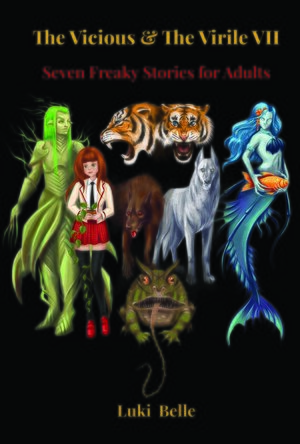
The Vicious & The Virile VII: Seven Freaky Stories for Adults
Book
A collection of short horror stories, The Vicious and The Virile VII offers a captivating...
Dark Fantasy Short Story Collection

Sanitarium
Games
App
In Sanitarium you play an amnesiac thrust into a morbid, really creepy universe. After a car...
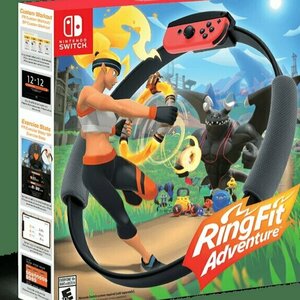
Ring Fit Adventure
Video Game Watch
Explore a fantasy adventure world to defeat a bodybuilding dragon and his minions using real-life...
postapocalypticplayground (27 KP) rated Our Dark Stars in Books
Jan 9, 2018
Talia is a Starchaser. Eldest sibling in an ailing dynasty her 18th birthday should be a time to celebrate, however, it marks her shift in adulthood and sovereign in waiting. Her first task? She must accept a betrothal to the cruel Cassius, a lesser match but from a planet rich with Ore. Up until this time Talia has had a steadfast companion to share her dream, not a human but a "mock." a humanoid droid named Ailat. When Cassius forces her to chose between saving her family and saving her best friend, Talia makes the only choice she believes she can. Her choice is far reaching and through a series of events Talia finds herself in an escape pod, floating into space.
100 years later, Will Perrault and his rag tag crew of misfits are on the hunt for salvage and after discovering Talia's pod they suddenly discover that they are targets with some very high profile hunters on their tail. A lot has changed since that fateful night for Talia and the tables have turned completely as mock became master and human became slave. As Talia awakes she cannot even begin to comprehend what has happened. As the truth of both the length of time Talia has been in stasis and the uprising of the mocks unfolds before her, Talia must fight to put right the wrongs of that terrible night.
Our Dark Stars is a gorgeous read, from the beautiful cover design to the words themselves. Talia is a wonderful character, full of both strength and vulnerability, she is able to hold her own and put aside her fears and grief to put right her wrongs. The chapters covering the fateful night 100 years prior are full of real heart pounding and also heartbreaking moments as Talia must choose between loyalty to her family and loyalty to her friend. Will's crew are a great bunch of characters, if you were a fan of the show Firefly you will find a lot to love with them as they bring humour to the darker sides of this story
Whilst I saw the reveal coming a mile off, it didn't spoil the enjoyment of the moment, which was terrifying in the face of how Talia came to be in that position. Our Dark Stars has some truly epic moments from space battles to strip clubs, but it is also a story about friendship, betrayal and redemption and how hope can be found in the most unlikely of places.
I really loved this book, I read it in 2 sittings and struggled to put it down. It's such an easy read, page after page just flow together - i'm glad the story was rounded off well but i'm also intrigued that there could be more of these characters story to come.
100 years later, Will Perrault and his rag tag crew of misfits are on the hunt for salvage and after discovering Talia's pod they suddenly discover that they are targets with some very high profile hunters on their tail. A lot has changed since that fateful night for Talia and the tables have turned completely as mock became master and human became slave. As Talia awakes she cannot even begin to comprehend what has happened. As the truth of both the length of time Talia has been in stasis and the uprising of the mocks unfolds before her, Talia must fight to put right the wrongs of that terrible night.
Our Dark Stars is a gorgeous read, from the beautiful cover design to the words themselves. Talia is a wonderful character, full of both strength and vulnerability, she is able to hold her own and put aside her fears and grief to put right her wrongs. The chapters covering the fateful night 100 years prior are full of real heart pounding and also heartbreaking moments as Talia must choose between loyalty to her family and loyalty to her friend. Will's crew are a great bunch of characters, if you were a fan of the show Firefly you will find a lot to love with them as they bring humour to the darker sides of this story
Whilst I saw the reveal coming a mile off, it didn't spoil the enjoyment of the moment, which was terrifying in the face of how Talia came to be in that position. Our Dark Stars has some truly epic moments from space battles to strip clubs, but it is also a story about friendship, betrayal and redemption and how hope can be found in the most unlikely of places.
I really loved this book, I read it in 2 sittings and struggled to put it down. It's such an easy read, page after page just flow together - i'm glad the story was rounded off well but i'm also intrigued that there could be more of these characters story to come.
Gareth von Kallenbach (980 KP) rated A Very Harold & Kumar Christmas (2011) in Movies
Aug 7, 2019
A Very Harold and Kumar 3D Christmas is the third movie in the Harold and Kumar series. This movie takes place six years after the events of Escape from Guantanamo Bay. Harold Lee (John Cho) and Kumar Patel (Kal Penn) have fallen out of touch since Harold got married, got a job on Wall Street and moved to the suburbs. Kumar is still smoking tons of weed. Harold on the other hand has stopped smoking weed and is desperately trying to find a way to impress his father in-law, Mr. Perez, played by Danny Trejo. Mr. Perez is obsessed with Christmas. Every year his family uses a Christmas tree that he has grown. This year he brought his home grown tree to Harold’s house for Christmas. In an attempt to win Mr. Perez over, Harold encourages Mr. Perez to take the family to midnight mass while Harold decorates the tree while they are gone.
Kumar is still living in the same apartment that he shared with Harold. He has let the place go a bit while he has been living on his own. His ex-girlfriend shows up to tell him she is pregnant, but since Kumar is high he doesn’t act very mature about it. Later, as Kumar is getting ready to go to a party with his new friend, he finds a mysterious package at his door addressed to Harold. Kumar decides to take it by Harold’s house on his way to the party. When he gets there Harold and Kumar catch up a little bit over some egg nog. Harold opens the package and discovers it is a giant joint, which Kumar proceeds to light it up. Harold gets upset and throws the joint out of the window. It then magically comes back inside and burns down the tree. Of course this freaks Harold out and a desperate search for a new tree begins
This is the beginning of a hysterical journey . This roller coaster ride is filled with drugs, sex, gangsters and even more drugs. Of course Neil Patrick Harris comes back to be his crude self. This movie has a lot of good Christmas moments, but it is only for a mature audience. Fans of the first two Harold and Kumar movies will love the third installment. A Very Harold and Kumar 3D Christmas is a non stop laugh fest. The 3D in this movie was surprisingly good. Movie goers will be impressed by the two different kinds of snow and the weed smoke going out over the audience. A Very Harold and Kumar 3D Christmas is bound to become a Christmas classic that you will want to watch every year.
Kumar is still living in the same apartment that he shared with Harold. He has let the place go a bit while he has been living on his own. His ex-girlfriend shows up to tell him she is pregnant, but since Kumar is high he doesn’t act very mature about it. Later, as Kumar is getting ready to go to a party with his new friend, he finds a mysterious package at his door addressed to Harold. Kumar decides to take it by Harold’s house on his way to the party. When he gets there Harold and Kumar catch up a little bit over some egg nog. Harold opens the package and discovers it is a giant joint, which Kumar proceeds to light it up. Harold gets upset and throws the joint out of the window. It then magically comes back inside and burns down the tree. Of course this freaks Harold out and a desperate search for a new tree begins
This is the beginning of a hysterical journey . This roller coaster ride is filled with drugs, sex, gangsters and even more drugs. Of course Neil Patrick Harris comes back to be his crude self. This movie has a lot of good Christmas moments, but it is only for a mature audience. Fans of the first two Harold and Kumar movies will love the third installment. A Very Harold and Kumar 3D Christmas is a non stop laugh fest. The 3D in this movie was surprisingly good. Movie goers will be impressed by the two different kinds of snow and the weed smoke going out over the audience. A Very Harold and Kumar 3D Christmas is bound to become a Christmas classic that you will want to watch every year.
Charlie Cobra Reviews (1840 KP) rated Crawl (2019) in Movies
Jul 7, 2020
Killer Alligators and Buckets Of Blood
Crawl is a 2019 disaster/horror movie directed by Alexandre Aja and written by Michael and Shawn Rasmussen. It was produced by Sam Raimi and Craig J. Flores and also Ghost House Pictures and Raimi Productions with distribution by Paramount Pictures. The film stars Kaya Scodelario and Barry Pepper.
Beth advises her sister, Haley Keller (Kaya Scodelario), an aspiring University of Florida swimmer to get out of the state, because a Category 5 hurricane is nearing. Concerned for the safety of her father, Dave (Barry Pepper), she goes against police instructions to evacuate, and goes to check on him. Hayley finds Dave's truck at their old Coral Lake home, where she goes into the crawlspace underneath the home to find her father. Now they both find themselves in a struggle for survival as large, ravenous alligators block their escape and they race against time as flood waters rise.
This movie was pretty awesome and better than I thought it was going to be. It was surprisingly delightful the way they built suspense and kept the tension in scenes. It was also pretty brutal with the blood and gore in the kill scenes. Kayla Scodelario performed amazingly and was great as Hayley Keller. Definitely an action-packed blood soaked adventure. The special effects were a little too unrealistic for me, especially in the beginning, which I thought would have bothered me more; but the plight the characters were in was done in such a way, that it just really draws you in. I know a lot of people would probably criticize the alligators behavior in this film too but I'm sure that could be said of movies like Jaws as well. If you don't over analyze it, you'll allow yourself to enjoy a rather exhilarating experience. I give it a 8/10.
This movie was pretty awesome and better than I thought it was going to be. It was surprisingly delightful the way they built suspense and kept the tension in scenes. Kayla Scodelario performed amazingly and was great as Hayley Keller. Definitely an action-packed, blood soaked adventure. The special effects were a little too unrealistic for me, especiallywhich I thought would have bothered me more but the plight the characters were done in such a that it just really draws you in. I know a lot of people would probably criticize the way the alligators behavior in this film but I'm sure that could be said of movies like Jaws as well. If you don't analyze it too harshly you'll allow yourself to enjoy a rather exhilarating experience. I give it a 8/10.
Beth advises her sister, Haley Keller (Kaya Scodelario), an aspiring University of Florida swimmer to get out of the state, because a Category 5 hurricane is nearing. Concerned for the safety of her father, Dave (Barry Pepper), she goes against police instructions to evacuate, and goes to check on him. Hayley finds Dave's truck at their old Coral Lake home, where she goes into the crawlspace underneath the home to find her father. Now they both find themselves in a struggle for survival as large, ravenous alligators block their escape and they race against time as flood waters rise.
This movie was pretty awesome and better than I thought it was going to be. It was surprisingly delightful the way they built suspense and kept the tension in scenes. It was also pretty brutal with the blood and gore in the kill scenes. Kayla Scodelario performed amazingly and was great as Hayley Keller. Definitely an action-packed blood soaked adventure. The special effects were a little too unrealistic for me, especially in the beginning, which I thought would have bothered me more; but the plight the characters were in was done in such a way, that it just really draws you in. I know a lot of people would probably criticize the alligators behavior in this film too but I'm sure that could be said of movies like Jaws as well. If you don't over analyze it, you'll allow yourself to enjoy a rather exhilarating experience. I give it a 8/10.
This movie was pretty awesome and better than I thought it was going to be. It was surprisingly delightful the way they built suspense and kept the tension in scenes. Kayla Scodelario performed amazingly and was great as Hayley Keller. Definitely an action-packed, blood soaked adventure. The special effects were a little too unrealistic for me, especiallywhich I thought would have bothered me more but the plight the characters were done in such a that it just really draws you in. I know a lot of people would probably criticize the way the alligators behavior in this film but I'm sure that could be said of movies like Jaws as well. If you don't analyze it too harshly you'll allow yourself to enjoy a rather exhilarating experience. I give it a 8/10.
Movie Metropolis (309 KP) rated Gerald's Game (2017) in Movies
Jun 10, 2019
Not a very fun game
The horror film market is huge. Hundreds, if not thousands, of horror films are made every year, with only few standing out of the blood-drenched crowd. Netflix, with a penchant for outstanding horrors and thrillers, decided to hop on the horror flick train, bringing about an adaptation of Stephen King’s terrifying novel ‘Gerald’s Game’.
The film follows Jessie (Carla Gugino) and her husband, Gerald (Bruce Greenwood), as they head to a remote lake house in order to spice up their marriage. One thing leads to another, and then Gerald has a heart attack and dies, leaving Jessie handcuffed to the bed with the keys out of reach. She must then fight to survive, whilst having a few disturbing flashbacks and encounters along the way.
This movie is really disturbing. Like, really, really disturbing. It’s not particularly scary, there’s the odd jump-scare or three, but its the imagery and the situation that really get your heart going.
Carla Gugino as the shackled wife is a stand-out in this film. She basically carries it, only with a few interruptions from inside her head, and this makes for very entertaining viewing. She’s amusing, in a way that you didn’t think anyone could be whilst fighting dehydration, a hungry dog at the end of her bed and death himself. In all honesty, it’s not a very fun game.
Her husband, however, is brilliant at being horrible. Greenwood really amps up the bad husband vibes in the 20 minutes he is alive, which then are exacerbated in Jessie’s head after he has died. He’s manipulative, seedy and slimy: something that Jessie realises at the end of the film.
It could be argued that this film isn’t really a horror film in the typical sense. It’s more a horror film about what has happened to Jessie, the main character, and how she comes to terms with her past and survives. She calls on past experiences to escape her confines on the bed, and her horrible history.
That’s not to say that it doesn’t have stereotypical horror movie attributes. The Moonlight Man is their contribution to the supernatural – or more the ‘is he actually there or am I insane?’ kind of gimmick that sometimes comes with this genre. The Moonlight Man is a shadowy figure, lurking in the shadows with his box of trinkets and bones. He’s absolutely terrifying.
He’s also real. In the film and book, he’s a necrophiliac who’s waiting for Jessie to die so he can add her wedding ring and one of her bones to his box. The Moonlight Man is the kind of horror movie villain that you have nightmares about. Which is why he is one of the highlights of Gerald’s Game.
The film isn’t exactly the most complex plot in the world. It plays a bit too much on the stereotypes in some cases and the ending, in true horror film fashion, is too happy, is too well put together after such a traumatic experience. It all ends a bit too neatly after such a messy first three-quarters.
Even though this isn’t the best horror film ever, it certainly is not the worst. It has it’s flaws, but the acting and the scriptwriting make up for the few it has. In an era of horror trying too hard, this film is simple and refreshing, bringing a new feeling to the horror industry as a whole.
So, the moral of the story is: don’t handcuff yourself to the bed because your husband will die on top of you and then a stray dog will eat him and a necrophiliac will come into your house at night. Quite an easy thing to remember, right?
https://moviemetropolis.net/2017/12/06/geralds-game-review-not-a-very-fun-game/
The film follows Jessie (Carla Gugino) and her husband, Gerald (Bruce Greenwood), as they head to a remote lake house in order to spice up their marriage. One thing leads to another, and then Gerald has a heart attack and dies, leaving Jessie handcuffed to the bed with the keys out of reach. She must then fight to survive, whilst having a few disturbing flashbacks and encounters along the way.
This movie is really disturbing. Like, really, really disturbing. It’s not particularly scary, there’s the odd jump-scare or three, but its the imagery and the situation that really get your heart going.
Carla Gugino as the shackled wife is a stand-out in this film. She basically carries it, only with a few interruptions from inside her head, and this makes for very entertaining viewing. She’s amusing, in a way that you didn’t think anyone could be whilst fighting dehydration, a hungry dog at the end of her bed and death himself. In all honesty, it’s not a very fun game.
Her husband, however, is brilliant at being horrible. Greenwood really amps up the bad husband vibes in the 20 minutes he is alive, which then are exacerbated in Jessie’s head after he has died. He’s manipulative, seedy and slimy: something that Jessie realises at the end of the film.
It could be argued that this film isn’t really a horror film in the typical sense. It’s more a horror film about what has happened to Jessie, the main character, and how she comes to terms with her past and survives. She calls on past experiences to escape her confines on the bed, and her horrible history.
That’s not to say that it doesn’t have stereotypical horror movie attributes. The Moonlight Man is their contribution to the supernatural – or more the ‘is he actually there or am I insane?’ kind of gimmick that sometimes comes with this genre. The Moonlight Man is a shadowy figure, lurking in the shadows with his box of trinkets and bones. He’s absolutely terrifying.
He’s also real. In the film and book, he’s a necrophiliac who’s waiting for Jessie to die so he can add her wedding ring and one of her bones to his box. The Moonlight Man is the kind of horror movie villain that you have nightmares about. Which is why he is one of the highlights of Gerald’s Game.
The film isn’t exactly the most complex plot in the world. It plays a bit too much on the stereotypes in some cases and the ending, in true horror film fashion, is too happy, is too well put together after such a traumatic experience. It all ends a bit too neatly after such a messy first three-quarters.
Even though this isn’t the best horror film ever, it certainly is not the worst. It has it’s flaws, but the acting and the scriptwriting make up for the few it has. In an era of horror trying too hard, this film is simple and refreshing, bringing a new feeling to the horror industry as a whole.
So, the moral of the story is: don’t handcuff yourself to the bed because your husband will die on top of you and then a stray dog will eat him and a necrophiliac will come into your house at night. Quite an easy thing to remember, right?
https://moviemetropolis.net/2017/12/06/geralds-game-review-not-a-very-fun-game/
ArecRain (8 KP) rated Take Me for Granted (Take Me, #1) in Books
Jan 18, 2018
For someone who doesnt like reading bad boy/good girl tropes, I seem to be reading a lot of them lately. I dont even know why I picked up a copy of Take Me for Granted. The synopsis was one I have read a thousand times and the cover was nothing eye catching.
But let me tell you I am sure glad I did. If downloading it was whim then I dont even know what opening it up was. I was hooked from the very first page though. I identified with Ari more than most female leads. While I didnt grow up in a rich family nor do I attend an Ivy League school, I care more about schoolwork than I do most people. Reading Aris inner monologues and thoughts had me laughing because I understood. Its so easy to push people away, create a cold demeanor, and escape into school work. School doesnt hurt you the way people can.
Grant was also absolutely charming. He reminds me so much of my own fiancé in ways and I loved listening to him banter with Ari. At first, his pushiness rubbed me the wrong way. Having been in an abusive relationship, I wanted so much to just scream no in his face over and over again until he understood. However, he wasn't actually harmful in his pushiness, just persistent, and, honestly, had the patience of saint when it came to Ari considering how wishy washy she was at times.
I really enjoyed the story. Linde has a lovely, easy style and is a fantastic storyteller. I especially liked being able to read from both Grant's and Ari's POVs. The cliffhanger nearly destroyed me though, so you better believe I am going to continue the series. Somehow Lindes characters crawled their way beneath my skin, and I wont be content until I know they received a happy ending.
But let me tell you I am sure glad I did. If downloading it was whim then I dont even know what opening it up was. I was hooked from the very first page though. I identified with Ari more than most female leads. While I didnt grow up in a rich family nor do I attend an Ivy League school, I care more about schoolwork than I do most people. Reading Aris inner monologues and thoughts had me laughing because I understood. Its so easy to push people away, create a cold demeanor, and escape into school work. School doesnt hurt you the way people can.
Grant was also absolutely charming. He reminds me so much of my own fiancé in ways and I loved listening to him banter with Ari. At first, his pushiness rubbed me the wrong way. Having been in an abusive relationship, I wanted so much to just scream no in his face over and over again until he understood. However, he wasn't actually harmful in his pushiness, just persistent, and, honestly, had the patience of saint when it came to Ari considering how wishy washy she was at times.
I really enjoyed the story. Linde has a lovely, easy style and is a fantastic storyteller. I especially liked being able to read from both Grant's and Ari's POVs. The cliffhanger nearly destroyed me though, so you better believe I am going to continue the series. Somehow Lindes characters crawled their way beneath my skin, and I wont be content until I know they received a happy ending.
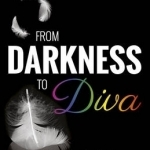
From Darkness to Diva
Book
Beyond the stereotypical expectation of glitter and sequins, comes a personal and inspirational...
